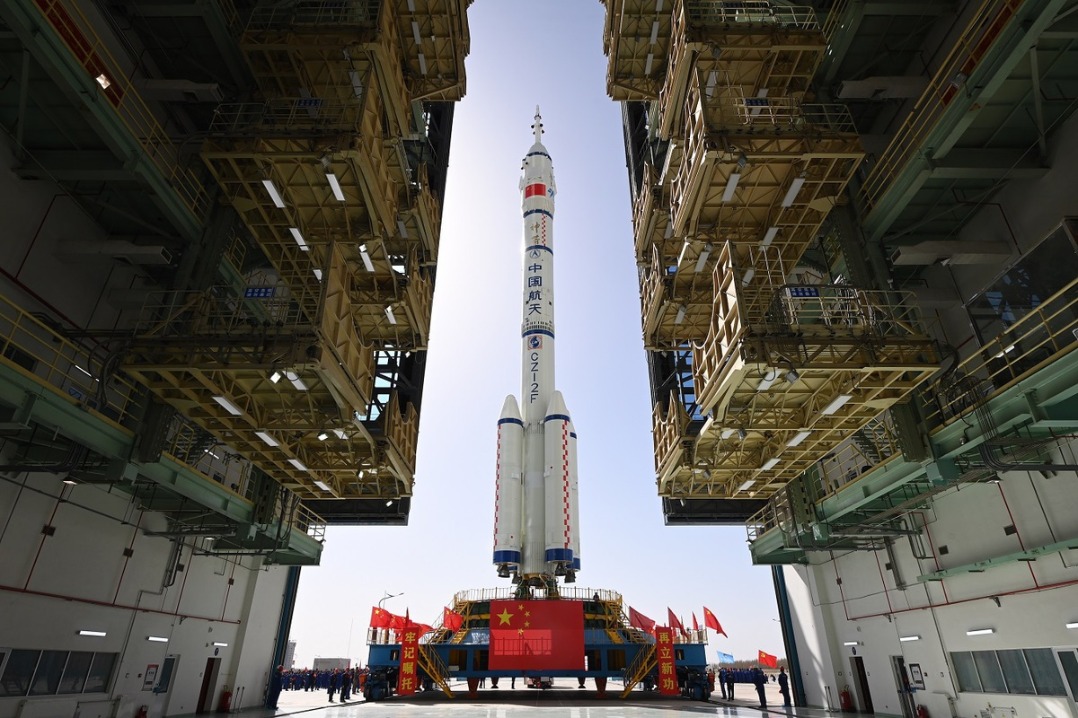Planning for the future in five-year cycles
By Laurence Brahm | China Daily | Updated: 2020-10-29 08:36

The 14th Five-Year Plan (2021-25) is high on the agenda of the ongoing Fifth Plenum of the 19th Central Committee of the Communist Party of China, as it will set the economic and development targets extending to 2035.
Western politicians and economists often deride China's system of planning in five-year cycles, claiming that planning does not allow for the innovation and entrepreneurial spirit required for a market economy. But through planning, China can build a more vibrant and innovative market economy.
Let me put this in perspective by offering some personal reflections. I first came to China as a student in 1981, and found an economy of scarcity. Nothing was available. Even if you wanted to buy rice or bread you had to have ration coupons. There was nothing in the old planned economy that people could buy even if they had money. It's another matter that people then had little money.
For the next four decades I watched and participated in China's transformation, first as a foreign investment lawyer helping bring multinational corporations to China, which transformed the economy in the 1980s and the 1990s. Now, China's policy of "ecological civilization" has been driving the shift from fossil fuels to renewables, and promoting technology innovation to achieve that goal through green finance.
China's five-year plan system allows for a far longer-term assessment of economic and social needs in transition, requiring the organization of budgets and infrastructure to meet the needs of the people and businesses as society moves forward. This differs from the Western system, which is driven more by election cycles and politics where economic health and people's livelihoods are seconded to priorities of political power and the dark-handed funding of political power by lobbying institutions.
We see this in the United States where the threat of the novel coronavirus, which has affected people's health and lives, as well as the health of the economy, is ignored for very short-term political interests.
China's planning process takes a far longer-term view than any other country. The traditional thinking of Chinese people sourced from Confucian philosophy, Taoism, Buddhism and universal laws establishes a cultural context allowing for planning. Long-term considerations of the broader public take priority over short-term individual needs of the politicians who seek to make personal gains or wealth, as we are seeing in the US today.
The 14th Five-Year Plan will take into consideration the new global environment. We are living in a world where de-globalization sentiments seem to be on the rise. In fact, we are looking at a bilateral world. On one side are the US and other countries that have resorted to protectionism and unilateralism, and on the other is the rest of the world seeking a multilateral environment alongside China.
This has created new challenges for China in its marketization process. With China's trade with the US and the European Union slowing down, there is likely to be an overall shift in China's development strategy-from robustly promoting globalization to focusing on the domestic economy, integrating the internal communication systems to boost domestic consumption, and further developing the domestic market.
In the past, China relied heavily on the US and the EU for high-end technologies. But with globalization facing new challenges, mainly due to US policies, the world is being forced into a state of localization. So there could be localization of manufacturing, and technology development, especially for software and chips, in China. Which will require further transformation of China's domestic economy and a sharper innovation strategy. This may be challenging in the early stages but in the long run it will benefit the country. As such, the focus on localizing higher-end manufacturing, technology development and innovation is likely to be an important part of the 14th Five-Year Plan.
Much of China's technology development will go into environmental repair-shifting of the energy grid from fossil fuels to green energy. While policymakers in Washington see environmental protection as an obstacle to economic growth, China sees environmental technologies, new energy systems, and the shift from fossil fuels to renewables all as business and development opportunities.
Given the immensity of vision needed in this transition, planning will be required along with the market acting as the driver incentivizing this shift. Renewable energy requires very advanced technology, and massive use of big data to manage the energy matrix. Therefore, this is an opportunity for growth, and creating jobs, new technologies and industries, businesses and new forms of finance.
And that's why markets need planning.
The views don't necessarily reflect those of China Daily.
The author is a documentary filmmaker, an explorer, environmental lawyer and a senior international fellow at the Center for China and Globalization.























